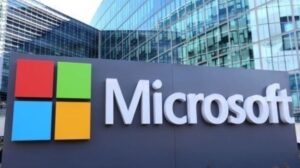Telecom
FG Launches 112, National Emergency Toll-Free Number
President Muhammadu Buhari has launched 112 – a National Emergency Toll-Free Number and urged Nigerians to make use of the number in cases of emergency.

President Muhammadu Buhari
At the launch in Abuja yesterday, Buhari touted that the giant strides his government has taken in the last five years to better the security of the people.
The President also directed the Minister of Communications and Digital Economy to work with all relevant government agencies to ensure full protection of critical national infrastructure.
“We have taken advantage of digital technologies to ensure that Nigerians in distress are only a dial away from the relevant emergency response institutions in the country. This will go a long way in supporting our efforts to improve the security of lives and property.” Buhari said.
The President also unveiled of the National Broadband Plan 2020–2025 and commissioned the Communications and Digital Economy complex and launched Abuja Emergency Communication Centre.
Buhari urged mobile network operators to ensure full attainment of the targets set in the National Broadband Plan by giving special attention to un-served and underserved areas while deploying their services.
Buhari expressed concern about the challenges faced by operators in the country, particularly vandalism of telecommunications equipment.
He assured the operators of government’s commitment to ensuring that all stakeholders have a conducive environment to ensure the successful implementation of the Broadband Plan, which seeks to boost broadband penetration as well as support the deployment of 4G across the country.
On the newly commissioned Emergency Communications Centre and Toll Free Number 112, the President explained that it further demonstrates his administration’s resolve to keep Nigerians safe.
On the Digital Nigeria Programme, President Buhari explained that it is one of Federal Government’s key initiatives to empower innovators and entrepreneurs with skills required to thrive in the emerging digital economy.
“It is part of our efforts to ensure that our youths, women, unemployed graduates and people living with disabilities either become employers of labour or get a large number of well-paying jobs thereby contributing to the national drive of lifting Nigerians out of poverty,’’ he said.
Similarly, the President declared that the newly commissioned Communications and Digital Economy Complex will provide a befitting coordinating centre for the new focus on the Nigerian Digital Economy.
”It signals the desire to intensify efforts towards ensuring that Nigeria becomes an active participant in the Global Digital Economy,’’ he said.
Earlier, the President acknowledged that the dwindling price of crude oil had adversely affected budgetary projections and increased the sense of urgency to diversify the economy.
He, however, expressed delight that the projects commissioned would enhance the development of the National Digital Economy and support efforts at diversifying the economy.
According to President Buhari ” The Digital Economy will also support us in fighting corruption through digitalization and enabling government digital services.
”Digital technologies have become a useful platform for economic diversification. Having recognised the benefits of these technologies we have decided to adopt the Digital Economy paradigm early,” he said.
The President also commended the Minister of Communications and Digital Economy, the Nigerian Communications Commission (NCC), the Presidential Committee and all stakeholders who participated in the development of the National Broadband Plan, lauding the leadership of the Ministry for the high level of synergy amongst the parastatals under its supervision.
In his remarks, Dr Isa Ali Ibrahim Pantami, minister of Communications and Digital Economy, said broadband penetration is key to reviving the Nigerian economy.
Citing reports from the World Bank and the World Economic Forum, the Minister said 10 per cent broadband penetration in any country will improve its GDP by at least 4.6 per cent.
With coronavirus spreading across the globe and more people living in isolation, the minister said the digital and information communication sector is providing alternatives for people to stay in touch and institutions to provide the needed basic life-saving services to the populace.
Prof Umar Danbatta, executive vice chairman of the NCC, announced that the country’s broadband penetration had increased to 38.5 per cent.
”As at the time this government came into power in 2015, broadband penetration was hovering between 4 and 6 per cent. Broadband penetration has now reached 38.5 per cent, ” he said.
Danbatta explained that the Digital Complex building accommodates the office of the Minister, permanent secretary of the Ministry and four departments of the Commission.
He added that the 5-storey building with two basement floors sit on 8 hectares of land at the Mbora district, Abuja and is equipped with modern telecommunications facility, a crèche for nursing mothers, gymnasium, among others.
Telecom
Nigeria Has World’s Most Affordable Data Costs – GSMA
Nigeria has an average data cost of $0.38 per gigabyte, making her the most affordable countries globally and one of the cheapest in Africa for mobile data services.

United States averages $6 per gigabyte and South Africa with $1.77 per gigabyte rank the highest globally and in Africa respectively.
According to the GSMA, Nigerian data costs, as a percentage of Gross National Income (GNI) per capita, are among the lowest across Africa.
The reports by the body lends weight to telecom operators advocacy for tariff adjustments to address economic pressures threatening the sector’s sustainability.
The GSMA report, titled “The Role of Mobile Technology in Driving the Digital Economy in Nigeria,” highlighted Nigeria’s competitive data pricing, which is significantly lower than other African nations, such as Kenya ($0.59 per gigabyte), Ethiopia ($0.68 per gigabyte), and South Africa ($1.77 per gigabyte).
By contrast, the United States averages $6 per gigabyte, underscoring Nigeria’s advantage in offering cost-effective connectivity.
The cost of mobile data in Africa varies greatly by country and region.
Data costs can refer to the cost of mobile data or the cost of acquiring, maintaining, and using business data.
In 2023, the average cost of 1 GB of mobile data in Sub-Saharan Africa was $3.31, while in Northern Africa it was $0.86.
Telecommunications operators in Nigeria have been requesting some policy changes as well as tariff rebalancing to enable them deliver support to the Government’s digital economy objectives.
They have called for the simplification and improvement of the Right of Way (RoW) charging and administration process, harmonised across the country
According to them, all government authorities (at national and sub-national levels) should apply the national maximum RoW fee of N145 per/LSQM adopted by the National Economic Council (NEC) for the deployment of fibre across all states in Nigeria.
There should be a single point of contact in each state for the RoW application process while the duration for the approval process should be digitalised and limited to a maximum of one month.
Simplification and reduction of the tax burden on the mobile sector
On tariff, recall that the Association of Licensed Telecommunications Operators of Nigeria (ALTON) and the Association of Telecommunications Companies of Nigeria (ATCON) had urged the Nigerian Communications Commission (NCC) to consider reviewing tariffs upward to address rising operational costs.
Nodding in agreement, Bismarck Rewane, chief executive officer, Financial Derivatives, said the proposed tariff hike by telecommunications will help reduce inflation in the country.
He said it would help to reduce inflation because it increases productivity, stressing that the price of MTN shares went up by 10% to 220.
Rewane reiterated that investors had already factored that in, adding that they are expecting a lot of good goodies.
“But more important to think about is the fact that because of an increase in tariff and an increase in investment to make the industry sustainable, they’re going to see an increase in productivity, not directly but indirectly.
“Any increase in productivity and output is likely to allow inflation to moderate, which is the goal. So, we heard from the policymaker, Bosun Tijani, who was very clear that we want a sustainable sector. But we also heard from the regulator saying that we will hold these guys to quality of service.
“We also heard from the operators, MTN that they are all revving up. So in all, there are economic benefits because of increased output and productivity. Two, policymakers are aligned because they want this to lead to a moderation in inflation,” he added.
He further said that it was not a bad deal and re-echoed the minister’s comment that the tariff hike will not be 100 per cent.
“Will they get 100%? No, they will definitely not. We suspect that we are going to likely see something between 40 and 50% which is fair after so many years of static changes,” Rewane added.
Telecom
Bismarck, Economist Claims Planned Tariff Hike by Telcos Will Reduce Inflation
Bismarck Rewane, chief executive officer, Financial Derivatives, has said the proposed tariff hike by telecommunications will help reduce inflation in the country.

Rewane made this statement on Channels Television’s Business Morning on Thursday.
Recall that Association of Licensed Telecommunications Operators of Nigeria (ALTON) and the Association of Telecommunications Companies of Nigeria (ATCON) had urged the Nigerian Communications Commission (NCC) to consider reviewing tariffs upward to address rising operational costs.
On January 3, Karl Toriola, chief executive officer (CEO), MTN Nigeria, said telcos want a 100 percent tariff hike.
According to Rewane, who previously supported the plans for a tariff hike, the move will make the sector more sustainable.
He said it would help to reduce inflation because it increases productivity, stressing that the price of MTN shares went up by 10% to 220.
Rewane reiterated that investors had already factored that in, adding that they are expecting a lot of good goodies.
“But more important to think about is the fact that because of an increase in tariff and an increase in investment to make the industry sustainable, they’re going to see an increase in productivity, not directly but indirectly.
“Any increase in productivity and output is likely to allow inflation to moderate, which is the goal. So, we heard from the policymaker Bosun Tijani, who was very clear that we want a sustainable sector. But we also heard from the regulator saying that we will hold these guys to quality of service.
“We also heard from the operators, MTN that they are all revving up. So in all, there are economic benefits because of increased output and productivity. Two, policymakers are aligned because they want this to lead to a moderation in inflation,” he added.
He further said that it was not a bad deal and re-echoed the minister’s comment that the tariff hike will not be 100 per cent.
“Will they get 100%? No, they will definitely not. We suspect that we are going to likely see something between 40 and 50% which is fair after so many years of static changes,” Rewane added.
Telecom
Microsoft to Spend $80Bn on AI Data Centres
In a bid to build AI-enabled data centres, Brad Smith, vice chair and president, Microsoft has disclosed the company’s plan to spend approximately $80 billion in its current financial year (to end in June), with more than half of that investment designated for the US.

Smith in a blog post, explained the tech giant plans to use the data centres “to train AI models and deploy AI and cloud-based applications around the world.”
Smith welcomed U.S. President Donald Trump to his second term in office, he cautioned against “heavy-handed regulations” that could slow down the private sector.
“The most important US public-policy priority should be to ensure that the US private sector can continue to advance with the wind at its back,” Smith stated.
He further explained that the U.S. “needs a pragmatic export control policy that balances strong security protection for AI components in trusted data centers with the ability for U.S. companies to expand rapidly and provide a reliable source of supply to the many countries that are American allies and friends.”
Stating that the US is well-positioned to flourish in its development of AI due to solid technology development and an innovative private sector.
“If the Trump Administration can develop a strong national AI talent strategy and use AI to make the government more effective and efficient, it will put the country on a promising path.”
He stated the U.S. is in a strong position to “win the essential race with China by advancing international adoption of American AI.”
Smith further claimed U.S. “products are more trusted than their Chinese counterparts, and our private sector is unmatched in its ability to invest in infrastructure around the world.”

 E-Financial3 days ago
E-Financial3 days agoSEC to Strengthen Borrowing Framework for Governments, Corporates

 Telecom3 days ago
Telecom3 days agoBismarck, Economist Claims Planned Tariff Hike by Telcos Will Reduce Inflation

 E-Business3 days ago
E-Business3 days agoKaspersky Reviews Main Business Headache Related to IT Security

 General News2 days ago
General News2 days agoNigeria Recovers $52.88m in Assets Linked to Former Petroleum Minister Diezani Alison-Madueke

 General News2 days ago
General News2 days agoTransform Your Health with QNET’s BELITE 123: The Ultimate Weight Management Solution

 E-Business2 days ago
E-Business2 days agoCybersecurity Firm Warns of Phishing Threats Targeting Telegram Premium

 E-Business3 days ago
E-Business3 days agoFG to Add Iris Biometrics to Digital ID for more Inclusion

 News3 days ago
News3 days agoNBS Website Still Down More than 3 Weeks after Cyber Attack




















